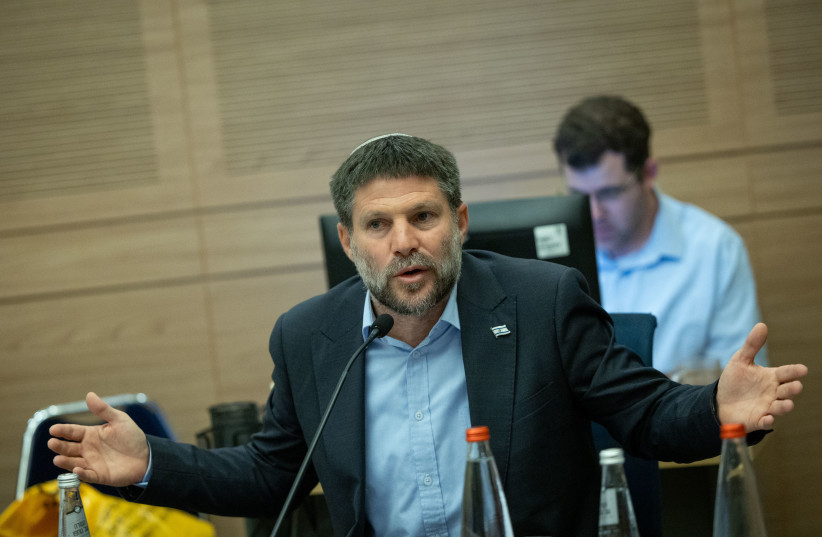This week, Israeli media revealed that Finance Minister Bezalel Smotrich has held up nearly NIS 3 billion in funds earmarked for Israel’s Arab community for ideological reasons – and despite pleas by fellow right-wing ministers, who say the holdup will plunge Arab local authorities into deficits and directly harm Israel’s security, economy, and social cohesion.
On Sunday morning, KAN reported that Smotrich had prevented the transfer of NIS 300 million intended for Arab local authorities, saying that he was “reconsidering” what ought to be done with the funds. Interior Minister Moshe Arbel of Shas had written to Smotrich, calling on him to release the funds and warning that the authorities’ budgets may be thrown off balance by his continued refusal to do so.
Arbel noted that he had convened several meetings on the subject and “the unanimous professional recommendation” is that the funds should be released. Smotrich has ignored Arbel’s appeal and stood by his refusal to transfer the funds.
Later the same day, KAN revealed that Smotrich had held up NIS 2.5 billion intended for various needs in eastern Jerusalem – part of a five-year strategic plan – because he objects to the use of NIS 200m. to enable Arab students to participate in a program at the city’s Hebrew University and Hadassah and Azrieli Colleges meant to encourage the integration of Arab young people into Israeli higher education.
In a Facebook post, Smotrich cited the growth of “radical Islamic cells” in Israeli universities, which, he said, “express solidarity with Israel’s enemies” and “make the lives of Jewish students intolerable” during periods of tension.

Holding funds meant for Arabs sparks condemnations
Smotrich’s decision to withhold the funds intended for Arab students has drawn sweeping condemnations, including from the Right.
National Security Adviser Tzachi Hanegbi, a member of Likud, urged Smotrich to release the funds, saying that encouraging higher education in eastern Jerusalem reduces involvement in terror activities. Israel Security Agency (Shin Bet) chief Ronen Bar had similarly written to Smotrich, calling on him to transfer the funds due to his agency’s contention that the integration of Arab students into Israeli higher education is a “moderating influence” that reduces violence among young people in eastern Jerusalem. Intelligence Minister Gila Gamliel, also a member of Likud, called on Smotrich to hand over the funds, noting that “the integration of the Arab population in academia has social, economic, and security importance.”
On Tuesday, Smotrich said that he had met with Prime Minister Benjamin Netanyahu to discuss the subject and that the prime minister supports his decision to withhold the funds.
We very much hope that is not true.
Integrating Israel’s Arab citizens more fully into Israeli society ought to be a high national priority. Decades of neglect and underfunding have bred resentment and a deep sense of alienation and discrimination among Arab Israelis, threatening social cohesion and fostering extremism. The Central Bureau of Statistics recently reported that 53% of Arab households in Israel are at risk of slipping into poverty, compared to 18% of Jewish households. The gaps in employment, household incomes, and general insecurity are massive and must be addressed – in eastern Jerusalem and throughout the country.
In recent years, Israel’s leaders have come to understand that significant funds must be invested in the country’s Arab community. In 2015, a previous Netanyahu government allocated NIS 10b. to improve infrastructure and narrow socioeconomic gaps in the Arab community. In 2021, the government of then-prime minister Naftali Bennett approved a NIS 32b. plan to do the same.
Smotrich’s refusal to transfer funds that have already been approved and allocated directly undermines the efforts of successive governments to better integrate Israel’s Arab community, in general, and residents of eastern Jerusalem, in particular, and flies in the face of Israel’s national interests. His reasoning is unsound and his motives are suspect.
Netanyahu should step in and order the funds released immediately.
